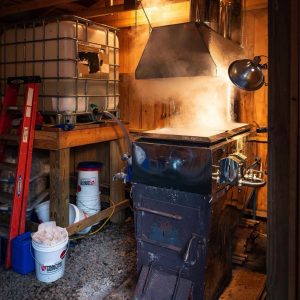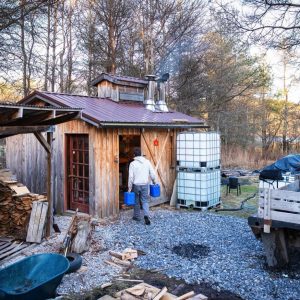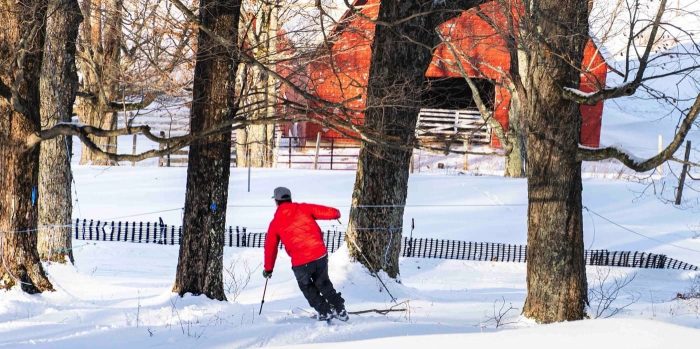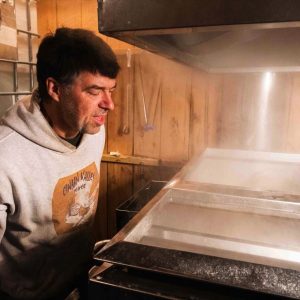Tap into Canaan Valley Maple
March 23, 2021
There comes a time of year between winter and spring that eludes context. Some will call it mud season, others a shoulder season. Skiers and snowboarders pray for a “miracle March” of late season snowfall. But for producers of maple syrup, the month of March is unrivaled.
I have no problem exclaiming a bias toward maple syrup, and blueberry pancakes in particular. An addiction since the age of three according to my mother. It is hard to keep a good secret about something so wonderful, thus now is the time to turn fellow maple syrup snobs onto America’s best. Allegheny Mountain maple syrup.
Over the past four years the West Virginia Maple Syrup Producers Association has been introducing folks to our little known bounty through Mountain State Maple Days. A self-guided tour of sugar shacks and supportive businesses. With covid19 still in play, I intentionally did not release this blog until after the event. Some producers were still reluctant about visitors but are ready for next year!

Here in Tucker County, Canaan Valley Maple started as a hobby and has since morphed into a micro batch producer. Todd Romero, or Chaga as he is locally known, exclusively taps into maple trees on the mountainsides surrounding Canaan Valley. Being the highest valley east of the Mississippi River provides for the ideal conditions needed.
If you have ever cross country skied at White Grass, one may have noticed blue maple sap lines in the woods or overhead while skiing out to Springer Orchard. Keep in mind this is only a fraction of the trees needed to produce the springs riches.
Real maple syrup requires about 40 gallons of tree sap to make one gallon of syrup. One tap or tree will produce around ten gallons of sap in the small production window of around thirty days. Of course this all depends on the sugar content found in the sap, which is about 2.5% in ideal conditions. The perfect weather conditions for sap collection are daytime temperatures around 40 degrees Fahrenheit and nighttime temps below freezing.

A few days this winter Chaga put down some great ski tracks alongside his maple lines. You could say these two were meant for each other. Weeks of uninterrupted cold and snow made for one of the best ski seasons in the past twenty years. This also means maple trees stayed dormant for a long time, which consequently increases sugar output. Signifying we are in store for extra sweet 2021 maple syrup here in West Virginia.

Back at Chagas sugar shack the stereo is cranking classic rock on 93.5, The FBY. The board and baton hemlock sugar shack is no bigger than a glorified shed. One half is taken up by a 270 gallon feeder crate and the wood fired evaporator. Quality control takes up other quarter with notebooks, cleaning instruments, and shiny pipe fixtures ready for duty.
Once the fire is burning hot, it is game on for hours of fire feeding, sap flow management, and maple syrup collecting. To get a taste of the operation I am put on a 10 minute loop of doing all the above, plus collecting firewood from outside. Now I understand why maple syrup costs what it does, but it is so well worth it.
If you are lucky enough to be in the area over the next few weeks, Blackwater Bikes in Davis is selling syrup produced by Canaan Valley Maple. You can also hit Chaga up on the Canaan Valley Maple Facebook site. Otherwise, purchase maple syrup produced by others in the same region from Thomas Yard in Thomas and The Highland Market in Davis.

 array(0) {
}
array(0) {
}